Ismail Mashal: Family fears for outspoken professor in Taliban custody
- Published
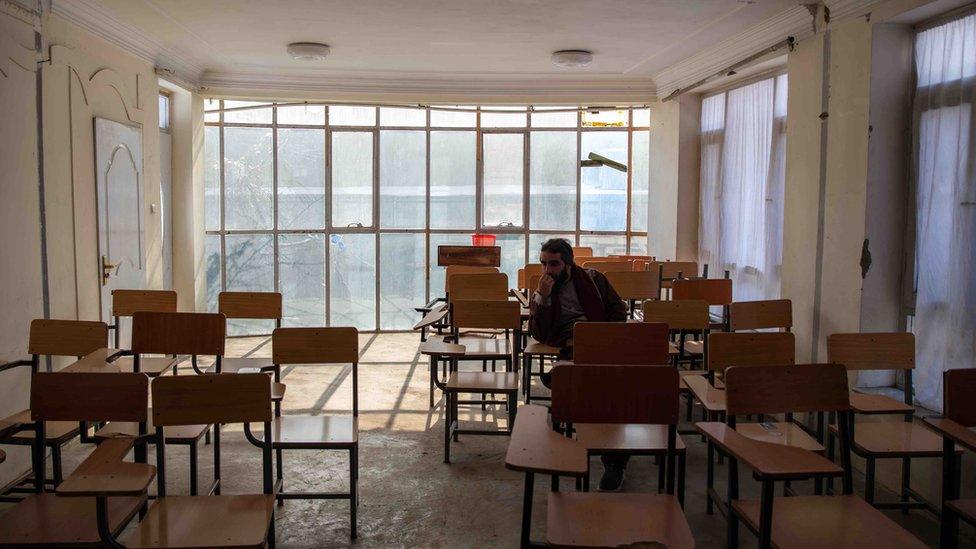
Prof Mashal ran a private educational institute where subjects for female students included journalism, engineering and economics
"His children have been crying - they miss him," said a member of Ismail Mashal's family. "They keep going to the gate and asking why he's not coming home."
Professor Mashal, a university lecturer and outspoken campaigner for women's education in Afghanistan, was arrested by the Taliban government on 2 February.
More than 10 days later, his family has no information on his whereabouts.
"We have not had any contact with him since he was taken. We are extremely worried," the relative told the BBC.
"We have been knocking on every door of the administration that we can, to get some information about him, and find out what condition he's in. But no-one says anything."
Prof Mashal was taken into custody when he was distributing free books in the Dehbori area of Kabul, near the higher education ministry.
Stuck on his handcart which carried the books was a handmade tree. On the top branch was painted a line in Dari that read: "Islam has given women and men equal rights to education."
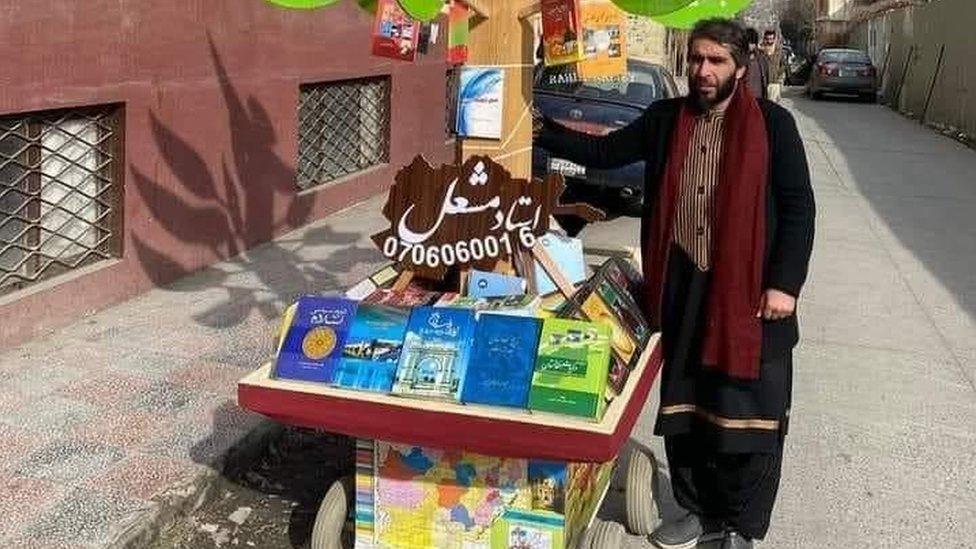
Prof Ismail Mashal was arrested with his handcart of free books in Kabul
Prof Mashal was slapped, kicked, punched and pushed to the ground by Taliban security forces who arrested him, eyewitnesses have told the BBC.
The BBC approached spokesmen for the Taliban's Kabul police unit, the government's intelligence department and their interior ministry with questions about why Prof Mashal had been arrested. More than a week after the arrest, the BBC reiterated the questions. There has been no response.
Soon after Prof Mashal was detained, a member of the Taliban's information ministry claimed on social media that he was accused of "provocative actions against the Taliban government" and was being treated well in custody.
Ismail Mashal was a lecturer at three universities, and also ran a private educational institute that offered diplomas in many subjects including computer science, economics and journalism - courses the Taliban's education minister said should not be taught to women because they are against Islam, and Afghan culture.
Prof Mashal's institute had 450 students, most of whom were female.
When the Taliban banned women from going to universities less than two months ago, Prof Mashal decided to shut the institute down because he did not want to run a school just for boys.
He also resigned as a lecturer. Then on live television on the Tolo news channel, he tore up his academic records., external
"My daughter told me you have a master's degree, so why can't I go to seventh grade? I had no answer," Ismail Mashal had told the BBC in an interview in January.
"I felt ashamed of keeping those documents when she can't attend school, and so I tore them up. They were original certificates that I had worked 18 difficult years to get."
He added that he wanted men to take their daughters to school or university and "sit outside on the road", if the Taliban hadn't allowed women into education by the start of the new term in March.
"Don't protest or gather, just sit outside even if there are no lessons. This is my expectation from Afghan men."
One of his female students told the BBC how proud she is that Prof Mashal is her teacher.
"You will not find anyone like him. He's kind and compassionate. He is a hero. He is fighting for our rights," said the student, whose identity we are hiding to protect her.
"After the ban, he tried to conduct lessons for us once a week. But after two weeks, he was forced to stop it as he was receiving threats."
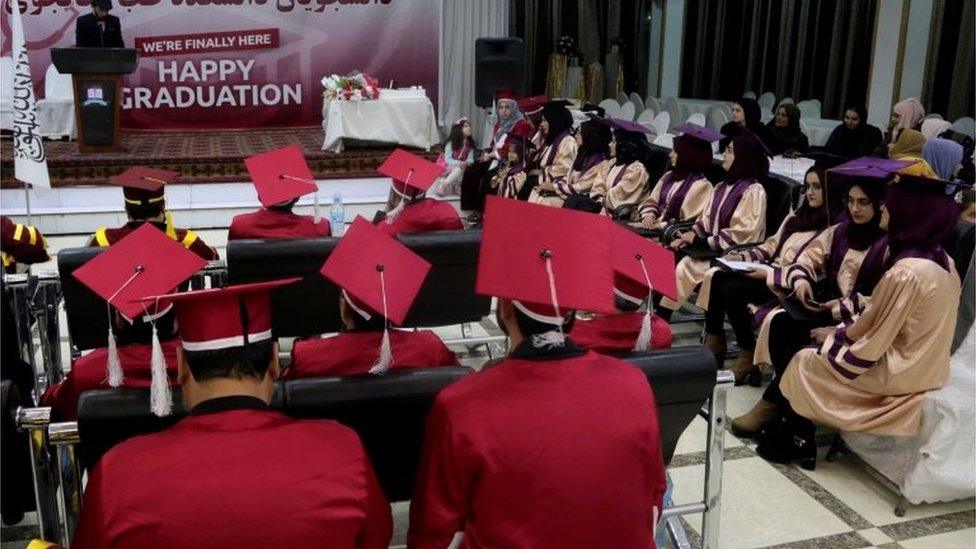
These women graduated in Kabul in January, shortly after the university ban that came in late last year
The threats came soon after the professor tore up his degrees, one of his close aides said.
"He got messages saying his life was in danger. So he decided to live apart from his family to protect them."
"On the day I left home, I kissed the hands of my mother and wife and told them I am going out for a struggle that God has told me is my obligation," Prof Mashal had told the BBC in January. "I have to stand up for Afghanistan's 20 million girls and women."
According to his close aide, the books the professor gave out had been collected over the past decade.
"There were 21,000 books. They [The Taliban] accuse him of provocative actions against the government, but what did he do wrong? Did he block the road? No.
"He was just giving books to those who can't afford to access the internet or buy books," the aide said, adding: "We want the international community to help in securing his release."
Amnesty International and Human Rights Watch have condemned the professor's arrest and demanded he be freed immediately.
The Taliban government has not responded to those calls. It says it banned women from universities to enable it to create an Islamic learning environment aligned with Sharia law practices.
Most people aren't convinced of their intent to ever re-open universities, because they have barred girls from secondary schools in most parts of Afghanistan since they took power.
While the protests against these restrictions have been predominantly led by Afghan women, male students and professors over the past few weeks have also begun risking their lives by speaking out - either by refusing to sit their final exams or by resigning from their positions.
Prof Mashal's arrest and his continued detention is seen as the Taliban government sending a message to anyone who dares speak out against them.
- Published25 January 2023
- Published30 December 2022
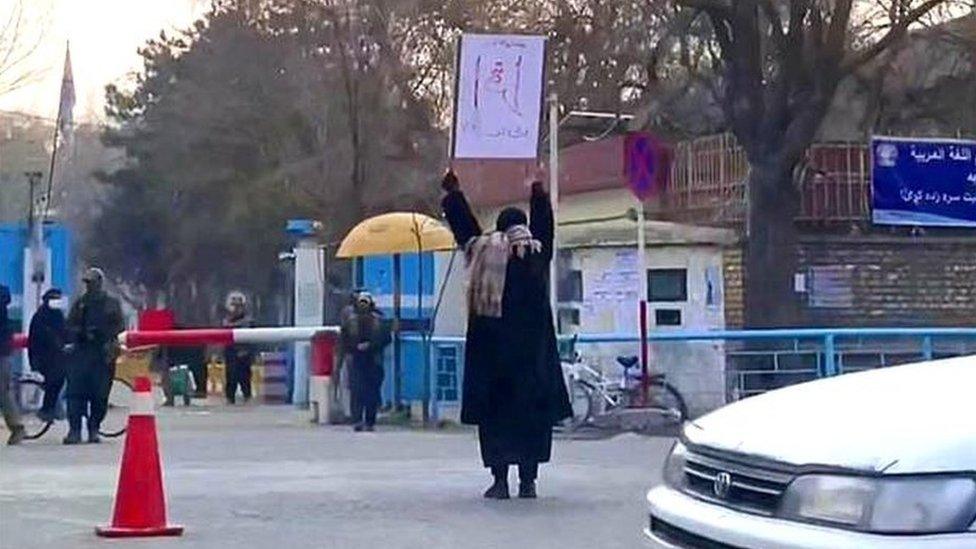
- Published20 January 2023
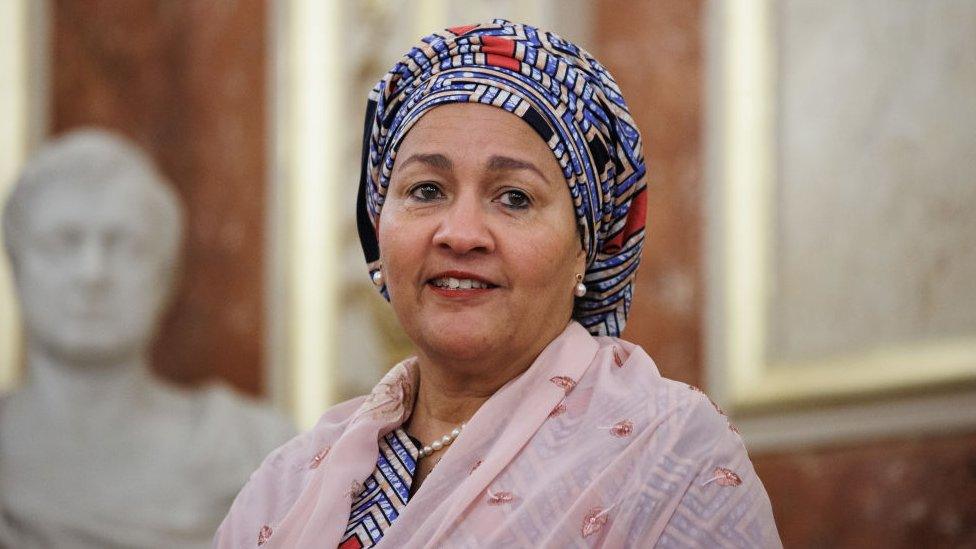
- Published18 January 2023